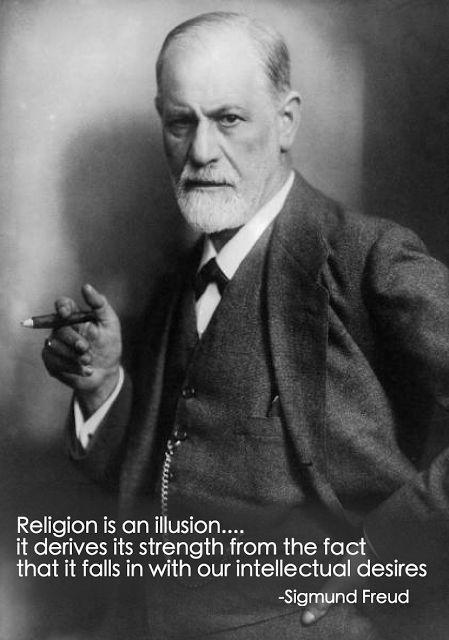Religion is an illusion and it derives its strength from the fact that it falls in with our instinctual desires


Religion is an illusion and it derives its strength from the fact that it falls in with our instinctual desires
Sigmund Freud, the father of psychoanalysis, was known for his controversial theories on religion and its origins. One of his most famous quotes is, “Religion is an illusion and it derives its strength from the fact that it falls in with our instinctual desires.” This statement reflects Freud’s belief that religion is a product of human psychology and serves as a way for individuals to cope with their fears and desires.Freud argued that religion is a form of wish fulfillment, where individuals project their desires for security, protection, and immortality onto a higher power or deity. He believed that religion provides comfort and reassurance to believers by offering explanations for the unknown and providing a sense of control over the unpredictable nature of life. In this way, religion acts as a defense mechanism against the anxieties and uncertainties of existence.
Freud also viewed religion as a form of infantile regression, where individuals revert back to a childlike state of dependency on a parental figure. He suggested that the concept of God serves as a substitute for the father figure, providing believers with a sense of security and guidance. By placing their faith in a higher power, individuals can avoid taking responsibility for their own actions and decisions, allowing them to escape feelings of guilt and shame.
Furthermore, Freud believed that religion perpetuates social control by enforcing moral codes and norms that regulate behavior. He argued that religious institutions use fear and guilt to manipulate individuals into conforming to societal expectations, thereby maintaining order and stability. By instilling a sense of obedience and submission in believers, religion can be used as a tool for social control and manipulation.
Overall, Freud’s theory on religion as an illusion rooted in instinctual desires challenges traditional beliefs and raises important questions about the psychological motivations behind religious beliefs. While his ideas may be controversial and provocative, they offer a unique perspective on the role of religion in human society and the ways in which it influences our thoughts, behaviors, and emotions.












 Friendship Quotes
Friendship Quotes Love Quotes
Love Quotes Life Quotes
Life Quotes Funny Quotes
Funny Quotes Motivational Quotes
Motivational Quotes Inspirational Quotes
Inspirational Quotes